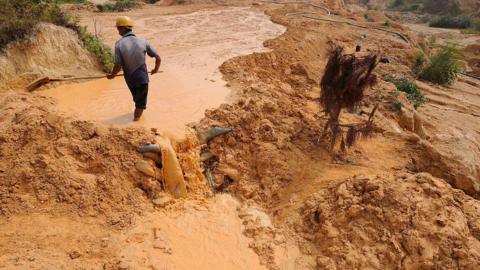A US Geological report notes that between 2020 and 2023, the US relied on China for 70% of its imports of all rare earth compounds and metals.
This means that the new restrictions have the ability to hit the US hard.
Heavy rare earths are used in many military fields such as missiles, radar, and permanent magnets.
A CSIS report notes that defence technologies including F-35 jets, Tomahawk missiles and Predator unmanned aerial vehicles all depend on these minerals.
It adds that this comes as China "expands its munitions production and acquires advanced weapons systems and equipment at a pace five to six times faster than the United States".
"The impact on the US defence industry will be substantial," said Mr Kroemmer.
And it's not only in the field of defence.
US manufacturing, which Trump has said he hopes to revive through the imposition of his tariffs, stand to be severely impacted.
"Manufacturers, particularly in defence and high-tech, face potential shortages and production delays due to halted shipments and limited inventories," said Dr Harper.
"Prices for critical rare earth materials are expected to surge, increasing the immediate costs of components used in a wide range of products, from smartphones to military hardware," he says, adding that this could result in potential production slowdowns for affected US companies.
If such a shortage from China persists in the long-run, the US could potentially begin diversifying its supply chains and scaling up its domestic and processing capabilities, though this would still require "substantial and sustained investment, technological advancements and potentially higher overall costs compared to the previous dependence on China".
And it's clear this is something already on Trump's mind. This week, he ordered an investigation into the national security risks posed by the US' reliance on such critical minerals.
"President Trump recognises that an overreliance on foreign critical minerals and their derivative products could jeopardise US defence capabilities, infrastructure development, and technological innovation," said the order.
"Critical minerals, including rare earth elements, are essential for national security and economic resilience."

